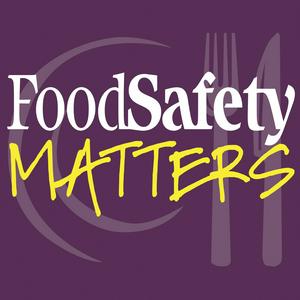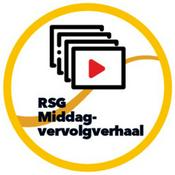275 episodes
- Kathleen Sanzo, J.D. is Co-Chair of Morgan Lewis' life sciences industry team. She centers her practice on regulatory and compliance issues connected to U.S. Food and Drug Administration (FDA)-regulated products. She leads and counsels clients on all legal and regulatory issues concerning food, dietary supplements, and cosmetic product manufacture, approval, marketing, and distribution; food, drug, and device compliance and enforcement matters; and consumer product issues regulated by the U.S. Consumer Product Safety Commission and state enforcement agencies, among other areas. A frequent author and co-author on publications related to FDA matters, Kathleen regularly speaks on these issues at industry events. She serves as Vice Chair of the Consumer Product Regulation Committee of the American Bar Association Section of Administrative Law and Regulatory Practice, and is a member of the Food and Drug Law Institute's Medical Products Committee.
In this episode of Food Safety Matters, we speak with Kathy [32:33] about:
Why FDA chose a voluntary approach to phasing out synthetic food dyes, the implications of this approach, and industry's response
Why state-level food additive restrictions are outpacing federal action
How the emerging patchwork of state laws creates significant operational and legal challenges for food manufacturers nationwide
The expected supply chain impacts of phasing out synthetic dyes
The legal risks companies face, from state enforcement to labeling, false advertising claims, and product liability
How companies can prepare by monitoring legislation, securing dependable ingredient suppliers, updating labels, and planning consumer communication
How state actions on additives may influence consumer expectations, spur industry innovation, and shape food policy over the next decade.
News and Resources
News
FDA Releases Human Foods Program Priority Deliverables and Guidance Agenda for 2026 [5:48]
FDA Testing Pinpoints Contaminated Ingredient in Infant Botulism Outbreak [17:44]
EFSA Sets Safety Thresholds for Cereulide Toxin in Infant Formula [19:43]
EFSA to Advise on Cereulide Levels in Infant Formula Following Global Recall
UK Mother's Allegation that Recalled Nestlé Formula Sickened her Baby is Unconfirmed
Experts Share Lessons from a Successful Listeria 'Seek and Destroy' Process [23:36]
FDA to Hold Virtual Public Meeting on Food Allergen Thresholds, Releases Event Materials [29:44]
Sponsored by:
CINTAS
We Want to Hear from You!
Please send us your questions and suggestions to [email protected] Ep. 210. Campbell Mitchell: Executive Leadership in Food Safety on a Global Scale
2026/1/27 | 1h 3 mins.Campbell Mitchell, M.B.A., is Head of Food Safety and Compliance for Kraft Heinz North America. He has more than 30 years of international experience in food safety, quality management, and risk mitigation. Prior to joining Kraft Heinz, Campbell served as Vice President of Quality and Safety at Fairlife LLC, a $4-billion Coca-Cola-owned dairy brand. He has also held senior leadership roles with Kerry Group and Almarai in the Middle East. Additionally, he founded a consultancy that supported Tiger Brands in Africa.
A microbiologist by training, Campbell holds a Postgraduate Diploma in Business Administration from Massey University in New Zealand. He frequently speaks at industry events on the topics of food safety culture and sustainability.
In this episode of Food Safety Matters, we speak with Campbell [38:24] about:
His childhood experience of growing up in different parts of the world and how it prepared him for an international career working in cross-cultural environments
What led Campbell from an education in microbiology to a profession in food safety, which he describes as "more of an art than a science"
What his role at Kraft Heinz entails, such as communicating that food safety is more than just lab testing—it's about every decision made within the organization
The drivers behind and work involved in Kraft Heinz's decision to phase out synthetic food colorings from its U.S. product portfolio
How Campbell manages high-level leadership responsibilities with the task of meeting technical and regulatory requirements for food safety and quality
The difference between food safety professionals' and consumers' concepts of "food safety" and how consumer demand influences business decisions
Kraft Heinz's near-term objectives for strengthening organizational food safety culture and compliance, starting with an enterprise-wide food safety culture survey
Examples of how digital tools can be used to proactively address food safety in complex supply chains, such as artificial intelligence (AI) for predicting when clean-in-place (CIP) needs to be conducted.
News and Resources
Eat Real Food: New U.S. Dietary Guidelines Name and Shame 'Highly Processed Foods' [6:29]
USDA-FSIS Describes Vision for Science-Based Approach to Reducing Salmonella in Poultry [14:35]
GAO Identifies Areas in Which FDA Has Yet to Fulfill FSMA [24:40]
Journal Retracts Hallmark Glyphosate Safety Study, Increasing Cancer Concerns [28:33]
EU Provides Guidance on Shelf-Life Studies to Reflect New Listeria Criteria for RTE Foods [35:09]
Sponsored by:
Michigan State University Online Food Safety Program
We Want to Hear from You!
Please send us your questions and suggestions to [email protected]- Helena Bottemiller Evich is the Founder and Editor-in-Chief of Food Fix. She previously led coverage of food and agriculture at POLITICO for nearly a decade, winning numerous awards for her work, including a prestigious George Polk Award for a series on climate change and two James Beard Awards for features on nutrition and science. In 2022, she was a James Beard Award finalist for a deep dive on diet-related diseases and COVID-19. Helena is also a sought-after speaker and commentator on food issues, appearing on CNN, MSNBC, CBS, BBC, NPR, and other outlets. Her work is widely cited in the media and has also been published in the Columbia Journalism Review and on NBC News.
In this episode of Food Safety Matters, we speak with Helena [2:58] about:
The newly released Dietary Guidelines for Americans 2025–2030 and their much-debated details, such as their saturated fats advice and focus on "highly processed foods"
Contention around the undecided definition for "ultra-processed foods" (UPFs), and what the use of "highly processed foods" instead of UPFs in the revised DGAs could imply
The differences in FDA's structure and its unique challenges today (e.g., facing the 2025 infant botulism outbreak linked to ByHeart formula) versus 2022, during the Cronobacter sakazakii/Abbott Nutrition infant formula crisis and before the establishment of FDA's Human Foods Program
The rise of "Make America Healthy Again" (MAHA), from a grassroots movement to an official White House-backed agenda with bipartisan support, and the implications for the food space
The question within the Trump Administration of whether MAHA rhetoric will translate into real policy changes that advance MAHA objectives
Shortcomings of the MAHA approach to food safety policy and regulation, particularly a lack of focus on microbiological safety and inconsistent handling of chemical safety
Why the MAHA agenda may not succeed with a deregulatory approach and a weakened federal workforce and resources
How the Trump Administration's moves in 2026 may determine if MAHA will remain in the forefront of public discussion, moving forward.
News and Resources
Eat Real Food: New U.S. Dietary Guidelines Name and Shame 'Highly Processed Foods'
Food Fix
We Want to Hear from You!
Please send us your questions and suggestions to [email protected] Yiannas, McDonald, Besser, Hedberg: Fixing the Outbreak Investigation System
2025/12/30 | 1h 16 mins.Frank Yiannas, M.P.H. is a renowned food safety leader and executive, food system futurist, author, professor, past president of the International Association of Food Protection (IAFP), and advocate for consumers. Most recently, he served under two different administrations as the Deputy Commissioner for Food Policy and Response at the U.S. Food and Drug Administration (FDA), a position he held from 2018–2023, after spending 30 years in leadership roles with Walmart and the Walt Disney Company.
After retiring from FDA, Mr. Yiannas founded Smarter FY Solutions to help organizations address critical food safety and supply chain challenges. He also advises several well-known companies, offering consultancy services to modernize compliance strategies and ensure that clients meet regulatory requirements and industry standards. Throughout his career, Mr. Yiannas has been recognized for his role in strengthening food safety standards in new and innovative ways, as well as building effective food safety management systems based on modern, science-based, and tech-enabled prevention principles.
Drew McDonald is the Senior Vice President of Quality and Food Safety at Taylor Fresh Foods in Salinas, California, where he oversees the quality and food safety programs across the foodservice, retail, and deli operations under both FDA and U.S. Department of Agriculture (USDA) jurisdictions. Mr. McDonald works with an impressive team developing and managing appropriate and practical quality and food safety programs for fresh food and produce products. He has more than 30 years of experience in fresh produce and fresh foods.
Over the course of his career, Mr. McDonald has worked with growers and processors of fresh food and produce items across the globe. He currently serves on numerous food safety-related technical committees and has participated in the authorship of many produce safety articles and guidelines. He serves on the Food Safety Summit Educational Advisory Board and is a former chair of the Center for Produce Food Safety's Technical Committee and United Fresh's Technical Council. Mr. McDonald received his education from Lawrence University in Wisconsin.
John Besser, Ph.D. worked for ten years as Deputy Chief of the Enteric Diseases Laboratory Branch at the U.S. Centers for Disease Control and Prevention (CDC), where he was involved in national and global programs to detect, characterize, and track gastrointestinal diseases. Prior to CDC, Dr. Besser led the infectious disease laboratory at the Minnesota Department of Health (MDH) for 19 years and served as a clinical microbiologist at the University of Minnesota Hospital for five years. He currently works as an independent contractor and consultant. Dr. Besser is the author or co-author of more than 70 publications. He received his Ph.D. and M.S. degree from the University of Minnesota.
Craig Hedberg, Ph.D. is a Professor in the Division of Environmental Health Sciences at the University of Minnesota and Co-Director of the Minnesota Integrated Food Safety Center of Excellence. He promotes public health surveillance as a prerequisite for effective food control, and his work focuses on improving methods for collaboration among public health and regulatory agencies, academic researchers, and industry to improve foodborne illness surveillance and outbreak investigations.
With a background in public health practice, Dr. Hedberg also focuses on public health workforce development and works with state, local, and tribal public health partners to build capacity for preparedness and emergency response. He is a member of the Council of State and Territorial Epidemiologists, the Minnesota Environmental Health Association, and IAFP. Dr. Hedberg holds a Ph.D. in Epidemiology and an M.S. degree in Environmental Health, both from the University of Minnesota.
In this episode of Food Safety Matters, we speak with Mr. Yiannas, Mr. McDonald, Dr. Besser, and Dr. Hedberg [6:43] about:
The increasing rate of food recalls issued by federal regulatory agencies, and what that might imply about the current systems for outbreak investigation and disease surveillance
How federal and state public health agencies conduct foodborne illness outbreak investigations and the current success rates of these investigations
Elements of the foodborne illness outbreak investigation process that are working well
Potential areas for improvement for foodborne illness outbreak investigations and the metrics for "success"
An idea for a National Foodborne Outbreak Investigation Board, similar to the model used for airlines with the National Transportation Safety Board, and how such a system might help improve food safety in the U.S.
Sponsored by:
Michigan State University Online Food Safety Program
We Want to Hear from You!
Please send us your questions and suggestions to [email protected]- In this episode of Food Safety Matters, we discuss the top food safety stories of 2025 and their implications. We cover:
The Trump Administration's impact on federal agencies overseeing food safety [7:52]:
FDA, CDC Ordered to Temporarily Pause All External Communications, Obtain Trump Admin Approval
RFK Jr. Confirmed as HHS Secretary; Widespread Firings Coming to FDA, CDC
USDA Inspector General Phyllis Fong Dismissed by Trump Administration
Brooke Rollins Confirmed as Secretary of Agriculture, Cites 'Aggressive Plan' to Eliminate USDA Jobs
FDA Leader Jim Jones Resigns After 89 'Indiscriminate' Firings in Human Foods Program
Attorney Kyle Diamantas Expected to Replace Jim Jones as FDA Deputy Commissioner of Human Foods
FDA Spending Freeze Leaves Staffers Feeling 'Dangerously Unprepared' for Next Foodborne Illness Outbreak
Federal Workforce Data Reveal Impact of Trump Admin RIFs on USDA Food Safety Expertise
More Than 15,000 USDA Employees Take Trump Administration's Resignation Offer
FDA Suspends Milk Quality Testing Amid Health and Human Services Cuts
Entire Departments of CDC Outbreak Experts Fired, Rehired During Shutdown RIFs
FDA Reportedly Reinstating Some Fired Food Safety Scientists, Inspection Support Staff
Government Shutdown Affects Food Safety: HHS Furloughs Employees, FDA Pauses CORE Investigation Table
Ep. 196. Dr. Lane Highbarger: How the FDA Workforce Cuts May Impact Food Safety
Dozens of Prominent Food Safety Stakeholders Call for Reinstatement of NACMCF and NACMPI
USDA Withdraws Proposed Regulatory Framework for Salmonella in Poultry After Years of Development
USDA Indefinitely Delays Enforcement of Salmonella as Adulterant in Raw Breaded, Stuffed Chicken
CDC Slashes FoodNet Surveillance From Eight Foodborne Pathogens to Two
Public Health Professionals, Groups Demand Resignation of HHS Secretary RFK Jr.
Trump-Appointed CDC Director Dr. Susan Monarez Fired After Clashes With Secretary Kennedy
RFK Jr.'s Second in Command Named CDC Acting Director Following Sudden Firing
Federal Layoffs to Hit HHS Amid Government Shutdown, May Affect Food Safety Staffers
FDA Delays FSMA 204 Traceability Rule Compliance Date by 30 Months
States and the "Make America Healthy Again" (MAHA) movement declare war on "toxic" food chemicals and ultra-processed foods (UPFs) [27:52]:
FDA Announces Plan to Phase Out Synthetic, Petroleum-Based Food Dyes From U.S. Food Supply
Bonus Episode: Diamantas and Choiniere: FDA Focuses on Produce Safety, MAHA, Culture, and More
MAHA Report Sets Stage for Overhaul of Food Chemicals, Environmental Contaminants, and Childhood Nutrition
What the Final MAHA Report Could Mean for Food Safety
FDA Announces 'Proactive' Post-Market Chemical Review Program to Keep Food Supply Safe
FDA Adds Six Artificial Food Dyes to List of Chemicals Under Post-Market Review
FDA to Issue Proposed Rule Tightening GRAS Oversight
FDA's Developing Rule to Tighten GRAS Oversight Moves to White House
FDA, USDA Issue Joint RFI to Address the Risks of Ultra-Processed Foods
California Enacts Law Defining Ultra-Processed Foods, Will Ban UPFs in Schools
Food Industry Stakeholders Share Input on FDA, USDA's Intent to Define UPFs
MAHA Pushback Kills 'Big Food'-Aligned Legislative Effort to Stop State Food Laws
Industry Giants Support New Coalition Aimed at Stopping MAHA-Aligned State Food Additive Bans
More Than 80 Groups Urge Congress Not to Block State Food Additives Bans
Ep. 187. Rainer and Coneski: Evolving Legislation Around Food Packaging Chemicals and Additives—Implications for Industry
Ep. 199. George Misko: The Future of Food Regulation Under MAHA
Ep. 162. Brian Sylvester: How the California Food Safety Act is Shaping U.S. Food Additives Regulation
Ep. 207. Brian Sylvester: Preparing for 'MAHA'-Driven Policy Changes on Food Dyes, UPFs, GRAS
FDA's focus on infant formula safety and the infant botulism outbreak linked to ByHeart formula [57:44]:
FDA Publishes Long-Term Strategy to Increase Resiliency of U.S. Infant Formula Market
FDA Launches 'Operation Stork Speed' to Improve Infant Formula Safety, Including Contaminant Testing
Infants Nationwide Hospitalized With Botulism After Consuming ByHeart Formula
ByHeart Outbreak Grows: 31 Infants in 15 States Hospitalized for Botulism From Tainted Formula
Infant Botulism Spike Exceeds 100 Cases, Extent of ByHeart's Involvement Unclear
A History of Food Safety Failures at ByHeart, the Formula Company Behind Infant Botulism Outbreak
ByHeart Finds Widespread Contamination in Infant Formula as Botulism Outbreak Grows; FDA Publishes Inspection Reports
Coalition Urges RFK Jr. to Fix Infant Formula Oversight Problems that Allowed Infant Botulism Outbreak
FDA Urges Industry to Improve Recall Efficiency After Delay in Removing ByHeart Formula from Stores
Emerging science on Listeria monocytogenes and biofilms [1:08:26]:
Study Shows Water Hoses as Reservoirs for Biofilms in Food Processing Facilities
Study Demonstrates Listeria's Ability to Colonize, Survive in Preexisting Multispecies Biofilms
First-of-its-Kind Study Shows How Listeria Strains Evolve Into Strong Biofilm Formers
Study Explores Sanitizer Limitations Against Listeria Biofilms in Leafy Greens Production
Listeria From Multispecies Biofilms More Prone to Growth in RTE Foods, Study Shows
Study Shows Combining Antimicrobial Blue Light and Chemical Sanitizers Can Enhance Listeria Inactivation
FAO/WHO Developing Risk Assessment Models for Listeria in Four Food Commodity Groups
The ongoing Highly Pathogenic Avian Influenza H5N1 (HPAI H5N1) outbreak in U.S. dairy cattle and poultry flocks and continued monitoring to ensure food safety [1:14:09]:
California Declares State of Emergency Over HPAI H5N1 Outbreak in Dairy Cows
USDA Begins Five-Part National Milk Testing Strategy for HPAI H5N1
USDA Extends H5N1 Testing in Dairy Cattle; EU Releases Guidance on Avian Flu Prevention
CDC: Avoid Consuming Raw Milk, as Risk of Bird Flu Infection is Low but Possible
FDA-Backed Study Shows Aging Raw Milk Cheese Does Not Inactivate Avian Flu, but Low pH Helps
Study Shows Avian Flu Does Not Pose Food Safety Risk in Various Pasteurized Dairy Products
USDA to Invest in Farm Biosecurity, Chicken Vaccinations to Combat Avian Influenza
Study Shows Acidification is Inexpensive, Easy Way to Inactivate Bird Flu in Raw Waste Milk
FDA Now Requires Raw Pet Food Manufacturers to Consider HPAI in Food Safety Plans
House Cat Dies After Eating Raw Pet Food Contaminated With HPAI H5N1
FDA-Backed Study Shows Aging Raw Milk Cheese Does Not Inactivate Avian Flu, but Low pH Helps
H5N1 and the Growing Risk to Food Safety—Why Raw Milk Requires Special Attention
FDA Begins Testing Assignment for HPAI H5N1 in Aged Raw Cow Milk Cheese
FAO Encourages All Countries to Monitor for HPAI H5N1 Spread to Cattle
Dutch Field Studies Show Promise for Two Experimental Avian Flu H5N1 Vaccines
Federal Workforce Data Reveal Impact of Trump Admin RIFs on USDA Food Safety Expertise
Growing artificial intelligence (AI) applications for food safety [1:17:57]:
FAO Report Highlights Needs for Responsible AI Adoption in Food Safety Fields
FDA Announces Completion of First AI-Assisted Scientific Review Pilot and Agency-Wide AI Rollout Timeline
Using AI, Researchers Offer Promising Real-Time Mycotoxin Detection Method for Foods
Big Data, AI, and the Coming Philosophical Challenges with Food Safety
Welcome to the Machine: AI and Potential Implications for the Food Industry
Ep. 193. Christian Ararat: A Global Perspective on Auditing, Certifications, AI, and Beyond
Ep. 205. Black and Gabor: Digital Transformation and Emerging International Standards for Food Safety
We Want to Hear from You!
Please send us your questions and suggestions to [email protected]
More Arts podcasts
Trending Arts podcasts
About Food Safety Matters
Food Safety Matters is a podcast for food safety professionals hosted by the Food Safety Magazine editorial team – the leading media brand in food safety for over 20 years. Each episode will feature a conversation with a food safety professional sharing their experiences and insights into the important job of safeguarding the world's food supply.
Podcast websiteListen to Food Safety Matters, Fashion Neurosis with Bella Freud and many other podcasts from around the world with the radio.net app

Get the free radio.net app
- Stations and podcasts to bookmark
- Stream via Wi-Fi or Bluetooth
- Supports Carplay & Android Auto
- Many other app features
Get the free radio.net app
- Stations and podcasts to bookmark
- Stream via Wi-Fi or Bluetooth
- Supports Carplay & Android Auto
- Many other app features


Food Safety Matters
Scan code,
download the app,
start listening.
download the app,
start listening.

































